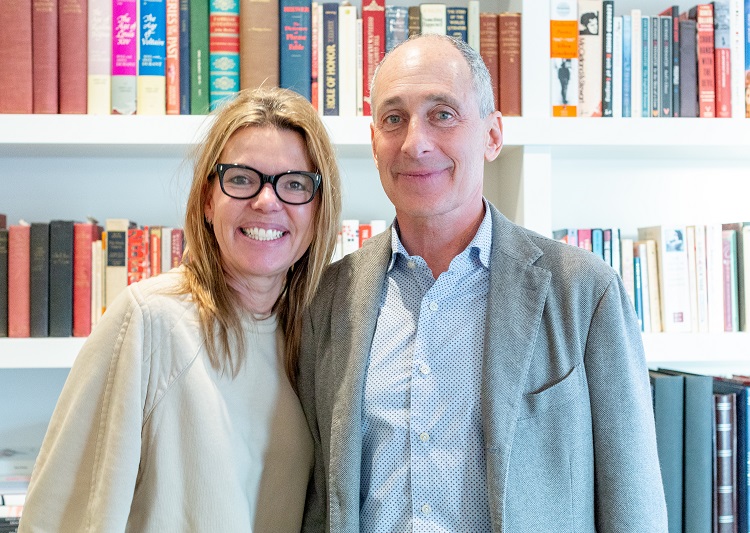Alumnus David Dime supports health innovation at U of T
 Featured Image Caption
Featured Image Caption
Chemistry alumnus and business founder David Dime (BSc 1973, PhD 1978) has generously established a catalyst fund at U of T’s Department of Molecular Genetics to support research into novel approaches to combat diseases.
Posted on December 11, 2018
In many Canadian universities today, startup incubators offer innovative students, faculty and alumni the opportunity to develop their business ideas into successful products and services. But when chemistry alumnus David Dime returned to the University of Toronto as an early-career researcher in 1980, the startup culture we now take for granted was virtually non-existent.
“At that time it was pretty rare for scientists to receive business support,” Dime says. “But the University was very generous. I had an idea and they encouraged me, said it could be done, that it made sense, that it was the right thing to do.”
Dime saw that scientists were having challenges finding the specialized chemical compounds they needed
After completing his PhD in chemistry, Dime left U of T to take up a post-doctoral fellowship at Ohio State University, followed by a stint in industry in Switzerland. Since Canada’s tiny chemical industry offered few jobs for people with his credentials, he re-connected with the U of T chemistry and biomedical communities and eventually began working with Professor Jeremy Carver in the Department of Molecular Genetics. During this period, he noticed that a lot of scientists at U of T and its partner hospitals were having challenges finding the specialized compounds they needed to carry out their experiments.
“These were chemicals that weren’t commercially available,” Dime explains. “Typically what the researchers would do was go to someone in the chemistry department and say: ‘I need this particular compound – can you make it?’ But it wasn’t that simple. The equipment and the analytics needed to successfully produce what they wanted are very expensive and you may only get a small amount of compound out of one person whose salary also has to be paid.”
Dime canvassed biomedical researchers up and down “hospital row” to ask if they felt there was a need for a company that would produce these customized chemicals. The answer was a resounding yes, and he believes it was this enthusiasm for his idea that convinced the University to provide him with the lab space he used to start Toronto Research Chemicals.
At first he used his spare time to synthesize compounds for some University and affiliated-hospital researchers, but as the demand grew, Dime realized it was time to leave U of T and build his own labs—and he says it was the encouragement he received from the University that gave him the confidence to go out on his own. The idea he conceived at U of T became a successful company and today Toronto Research Chemicals supplies markets around the globe.
A generous gift to support emerging research ideas
Dime recently made a generous $150,000 gift to the University to establish the David Dime and Elisa Nuyten Catalyst Fund in Molecular Genetics. The fund will award grants to promising research with commercialization potential, focusing on projects that aim to identify the cause of human disease, establish diagnostics for disease or infection, or develop strategies to reverse disease or damage. He is thrilled to be able to support emerging research ideas that may not receive funding through typical granting agencies, and credits his wife, Elisa Nuyten, for encouraging him to make this donation.
“I’m at a time in my life where I really want to become more involved in a philanthropic way with the University, and the Faculty of Medicine helped me do very well,” Dime says. “I think there are a lot of possibilities and I hope the fund can help kickstart some great ideas.”
Future donors will be able to support the fund and exciting new projects
Now that Dime has established the catalyst fund, the Faculty of Medicine is encouraging other donors to consider investing in it as well.
“David’s generosity to the Department will be instrumental in supporting some young researchers who may not otherwise have the opportunity to develop their ideas,” says Leah Cowen, Chair of U of T’s Department of Molecular Genetics. “We are extremely grateful to him and Elisa for their belief in our talented faculty and their desire to partner with us to advance the critical field of molecular genetics for the benefit of people living with devastating diseases.”
Looking ahead, Dime is optimistic about the projects the new catalyst fund will support. He points out that universities are central to training the experts that will carry out important research in everything from climate change to health challenges. And to him, the University of Toronto is just a little more special than most.
“For a long time I thought it was the only university in the world! But the truth is, the University is important and startups are important and to give money to startup technology at the University is something I’m very proud to do.”
Join David Dime and Elisa Nuyten in supporting innovative research through the Molecular Genetics Catalyst Fund.
Give Now